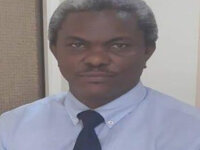By Cynthia Egboboh
The Economic and Financial Crimes Commission (EFCC) has said that 70 percent of financial fraud in Nigeria were carried out in the banking sector. Idowu Apejoye, the director of Internal Audit, EFCC, stated this during the 2023 Annual Retreat and General Meeting of the Association of Chief Audit Executives of Banks in Nigeria.
Apejoye, who represented Ola Olukayode, EFCC chairman, said trends of financial fraud have continued to spread more widely in recent years coupled with corporate fraud being experienced in Nigeria. She said: “Broadly speaking, banking fraud in Nigeria is both inside and outside related. The inside related fraud comprises outright selling of customers’ deposits, authorising loan facilities, forgery and several other kinds of unhealthy and criminal practices. The outsider related ones include hacking, ATM fraud, conspiracy, among others. And then the absurd one is when both collaborate, that is collaboration among the bankers and the outsider. That one is the one that is really absurd because when you do that, that means you are selling out the system. It is estimated that about 70 per cent of financial crimes in Nigeria are traceable to the banking sector. This scenario is disturbing and unacceptable.”
She charged the audit executives to use the system of checks and balances, to ensure that no one person has control over all parts of financial transactions in the bank. According to her, it has become imperative for chief audit executives to consider how the risk of fraud is managed across the organization and assess the fraud risk exposure periodically.
“The risk of fraud should be included in the audit plan and each audit assignment to evaluate the adequacy of anti-fraud controls put in place. Some have shown that organizations are reporting more experience of fraud than in previous years and that three out of four organizations have uncovered frauds. They should ensure that transactions are protected against fraud by putting in place modern checks to ensure that depositors’ funds and investments are secured,” she said.
In a related development, the Economic Financial Crimes Commission (EFCC) has tasked the Association of Chief Audit Executives of Banks in Nigeria (ACAEBIN) to detect and prevent fraudulent practices and transactions in the banking sector with surveillance. Idowu Apejoye, the Director of Internal Audit at the EFCC stated this during the ACAEBIN annual retreat and general meeting held recently in Abuja.

In his remarks, Prince Akamadu, chairman of the association noted that the role of the banking sector was crucial in the Nigerian economy, adding that the retreat was part of the measure of the bank to address the foreign exchange challenges in the country.
According to him, the banks have continued to commit resources to curb incidents of fraud in the system. “Talk about KYC-related fraud, I’m not aware that any institution, any sector has done more in the area of knowing your customers (KYC) than the banking industry. But there is the possibility to do more. A lot has been said about the foreign exchange challenges we have in this country and that is part of the reason we are having this retreat, given our position in the banking industry, we want to ask ourselves if we are doing enough and things that we can do in going forward. We hope to address some of the issues one way or the other, given that the FX challenge is multifaceted.”
In her remarks, Aina Amba, the vice chairman of the association said that the banking sector in Nigeria, over the years has evolved through several processes making it seamless for customers. She explained that with the new open banking initiative that is being brought on board, banking will be taken as a lifestyle. “What I mean by this is, when we start the journey with customers, we grow through the entire lifecycle with them. And because we see our customers as unique, we will be able to bring specific products that solve their problems.”




